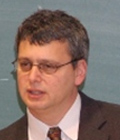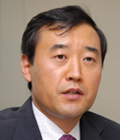Speakers and conference papers

Introduction
Dr. Beliz is the Director of the Institute for the Integration of Latin America and the Caribbean (INTAL), a unit of the Integration and Trade Sector of the Inter-American Development Bank. INTAL seeks to generate and disseminate knowledge on the benefits of integration processes, the trade dynamics of the region and the impact of new technologies on trade strategies. Dr. Beliz joined the IDB in 2005, working on citizen security in the different countries of the region. Prior to this position, he served in Argentina as Minister of Home Affairs and Minister of Justice, Security and Human Rights. He was also Secretary of the Public Function and Congressman of the City of Buenos Aires. He is a Lawyer from University of Buenos Aires with studies in the London School of Economics (LSE). He was also a professor in Austral University, where he taught communication. He was also a journalist.
Presentation Title: Objective and Subjective Dimensions of Regional and Global Integration in Latin-America
With more than twenty thousand exclusive polls conducted in eighteen countries in the region, the initiative INTAL-Latinobarómetro measures the opinion of the population on sensitive issues for the design of public policies in a number of areas including democracy, regional integration, living conditions, infrastructure, services, citizen security and the environment. This exercise helps to understand what Latin Americans think in these areas and describes the results of questions about integration and trade in fieldwork conducted in Argentina, Bolivia, Brazil, Colombia, Costa Rica, Chile, El Salvador, Guatemala, Honduras, Mexico, Nicaragua, Panama, Paraguay, Peru, Dominican Republic, Uruguay and Venezuela.

Introduction
Professor Lee is a scholar and lawyer in international economic law and law and development. He is Director and Professorial Fellow of the Law and Development Institute. He has also taught and conducted academic research at leading universities throughout the United States, Europe, and Asia. He graduated in economics with academic distinction from the University of California at Berkeley and received law degrees from the University of Cambridge (B.A., M.A., Ph.D). Author of Reclaiming Development in the World Trading System (Cambridge University Press, 2006, reprint 2009), Safeguard Measures in World Trade: The Legal Analysis (Edward Elgar, 3rd ed. 2014), and Law and Development Perspective on International Trade Law (co-authored, Cambridge University Press, 2011), Professor Lee has published seventy scholarly articles, book volumes, chapters and shorter notes with leading publishers in North America, Europe, and Asia, in the areas of international economic law, law and development, comparative law, and international commercial arbitration.
Presentation Title: The Long and Winding Road – Path Towards Facilitation of Development in the WTO: Reflections on the Doha Round and Beyond
The current multilateral trading system under the auspices of the World Trade Organization (WTO) displays a substantial development gap in the regulatory and institutional frameworks. The Doha Round negotiations, which was initiated to promote development interests under the Doha Development Agenda (DDA), have not been concluded for over 14 years, raising doubts about the ability of the WTO system to promote development interests effectively. While the Doha Round was sluggish for a number of years, regional trade agreements, which currently include every WTO Member, have been proliferated, creating significant implications for developing countries. This presentation examines the development of the Doha Round, analyzes the causes of its impasse, and explores its future prospects. The presentation also discusses the development gap in the current trading system and advances reform proposals to fill the gap in the system.

Introduction
Stéphanie de Moerloose is a Professor of International Development Cooperation at University Austral (Argentina) since 2009 and a Doctoral Research Fellow of the University of Geneva’s Institute for Environmental Sciences (Switzerland) since 2015. She has worked as a legal officer at the EEA Grants (Belgium), principally in social development projects in Eastern Europe and consulted for international financial institutions and NGOs on environmental and social standards and investment conflicts resolutions; she has worked in agribusiness, water rights and infrastructure projects in Latin America and Africa. She conducts research into the legal aspects of international financial institutions’ development cooperation. She is admitted to the New York Bar and holds a LL.M. from New York University and a Master Degree from the Faculty of Law of the University of Geneva; she is a Doctoral Candidate of University Austral and University of Geneva.
Presentation Title: Multilateral Banks and Sustainable Development: Towards the Emergence of a Common Law in Development Projects? (with Professor Makane Moïse Mbengue)
Multilateral Development Banks have evolved from avoiding non-economic considerations, as required in most of their charters, to officially supporting sustainable development. Rather than to international law, this change is due to the international acceptation of the sustainable development principle, the pressure from environmental NGOs and Donor States and to institutional changes triggered by Multilateral Development Banks’ staff. It is conditionality, specifically environmental and social safeguards, which reveals Multilateral Development Banks’ actual role in sustainable development. Although Multilateral Development Banks have similar safeguards in many policy area, tending towards a common general definition of sustainable development, many differences remain. The presentation argues in favor of the harmonization of Multilateral Development Banks’ environmental and social safeguards, resulting in the creation of a common law of sustainable development, the promotion of international law and the facilitation of investments.

Introduction
Born in Montevideo, Uruguay, Marcelo Meregalli-Ferrer was raised and educated in Buenos Aires. He majored in Philosophy at Universidad Católica Argentina and pursued studies in Epistemology and Philosophy of Science at Universidad Nacional de Tres de Febrero later. The first years of his professional career were in the classroom, teaching at different levels. He taught a variety of college courses in his field, as well as two Western Heritage class for Pepperdine University’s program in Buenos Aires. Later on his careered started shifting to International Education. For seven years he was the George Washington University’s Resident Director in Argentina. Then, he was hired as Assistant Director for International Programs at Universidad Austral, where he was later appointed Director of International Relations. He has been in this position since 2011. He is responsible for advancing comprehensive internationalization on campus, overseeing partnerships and exchanges, developing programs for foreign HEI’s

Introduction
Mario Campora serves as a Senior Law Clerk at the Supreme Court of Argentina (Secretario Letrado de la Corte Suprema de Justicia de la Nación) since 2011. He is an adjunct professor of Constitutional Law at Universidad de Buenos Aires (UBA), and has previously held research positions at Abo Akademi University (Finland) and at the Instituto de Investigaciones Jurídicas de la Universidad Autónoma de México (UNAM). He graduated as a lawyer at Universidad de Buenos Aires, and obtained a master’s degree (LLM) from New York University School of Law (NYU). He conducts research on the expanding role through structural litigation of judicial courts –in particular of constitutional courts- as institutions of governance.
Presentation Title: Do as I say: The Argentine Supreme Court as a maker of public policies
The intervention of the judiciary in the design of public policies – theoretically reserved for the Legislative and Executive powers- is not a recent invention of the argentine judges. In fact, this exercise belongs to a worldwide jurisprudential trend that has diffusely been called ‘judicial activism’. The scope of judicial activism has been for more than five decades (Dahl, 1957) one of the major debates on the role of the judiciary in the context of western republican democracies.
The presentation first shows that through a rights-based approach to development, Argentine constitutional judges become actors of high impact in the design and implementation of development policies. The presentation then argues that, although it upholds constitutional rights, this new role of the judiciary as a development policy making institution is highly controversial, since it implies reexamining the classical doctrine of separation of powers as the founding idea of rule of law. Finally, the presentation aims at uncovering institutional mechanisms which, while not limiting the implementation of a constitutional rights-based approach to development, still respect the checks and balances doctrine.

Introduction
TK Pooe is a lecture at the North West University’s Public Administration and Governance programme at the Vaal campus and completing his PhD in Local Economic Development policy and institutional development. He has previous lecturing experience as a Public Policy lecturer at the University of KwaZulu-Natal (Howard College), has worked as a Policy research consultant at the Gauteng Provincial Legislature and researcher for Integrated Development Planning Unit at the Sedibeng District Municipality (South African government). In addition to lecturing he works as a researcher analysing continental economic development policy with the Thabo Mbeki African Leadership Institute and focuses on economic development planning in South Africa through the Gordon Institute of Business Science (University of Pretoria). He holds a Master’s degree in Public Policy (Monitoring, Evaluation and Analysis/ Project Management and Implementation). He is also a South African Humanities Deans Association (SAHUDA) Fellow.
Presentation Title: Developmental State No Birth Right: South Africa’s Post-1994 Economic Development Story
This presentation’s key argument is that the South African government’s aspiration to be a Law and Development state, namely one that prioritises liberal actions such as separation of powers (judiciary, executive and legislature) and human rights is a key reason for not being a functional developmental state. Ultimately it can be argued that after two decades of following the Law and Development agenda, the South African State has achieved and perfected the tenets of Law and Development. Yet, this success has come at the expense of South Africa perusing economic development and institutional building for the majority of South Africa’s poor and vulnerable.

Introduction
Mariana Mota Prado is an Associate Professor at the Faculty of Law, University of Toronto and Associate Dean (Graduate Studies). She obtained her law degree (LLB) from the University of Sao Paulo, and her master’s (LLM) and Doctorate from Yale Law School. Prior to joining the University of Toronto in 2006, she worked for the Private Participation in Infrastructure Database Project at the World Bank (2004), and was a fellow of the Olin Center for Law, Economics and Public Policy at Yale Law School (2005). During the 2012-2013 academic year, she was a visiting researcher at MIT’s Political Science Department. A Brazilian national, she has taught courses at Centre for Transnational Legal Studies in London, Direito Rio – Getulio Vargas Foundation Law School in Brazil, ITAM Law School in Mexico, Los Andes Law School in Colombia, and University of Puerto Rico School of Law. Her scholarship focuses on law and development, regulated industries, and comparative law.
Presentation Title: The Dilemmas of the Developmental State: Democracy and Economic Development in Brazil
While the policies implemented by the “New Developmental State” in Brazil have been explored in the academic literature, its democratic dimension remains largely unmapped. Autocratic features characterized the developmental state in Latin America from the 1950s to the end of the 1980s (i.e. political exclusion of the majority of groups, and control of economic policies by an elite). Does the fact that the developmental goals are now pursued in a democratic context change the kind of structural change and growth strategies adopted? Are development policies and democratic structures always aligned, or are there tensions between then? Understanding the interactions between the New Developmental State and the democratic system not only allows for a better understanding of the Brazilian case, but it also sheds light on one of the most important theoretical questions raised by the development literature: is a democratic developmental state possible?

Introduction
Luis G. Franceschi holds an LL.B, LL.M and LL.D with a Cum Laude thesis on The African Human Rights Judicial System: A Proposal for Streamlining Structures and Domestication Mechanisms Viewed from the Foreign Affairs Power Perspective. He is French by descend, Venezuelan by birth and Kenyan by choice, having spent most of his life in Kenya. He is the founding dean of Strathmore Law School, where he also lectures Constitutional and International Law.
He has published more than a dozen peer-reviewed books and articles on law and ethics. His latest publications are: The African Human Rights Judicial System, published by Cambridge Scholars Publishing in February 2014, and The Constitution of Kenya 2010: A Commentary, a 900-page commentary on the Constitution of Kenya, co-authored with Prof PLO Lumumba and published in July 2014. He has also taught leadership executive courses in more than 15 countries. He has also been an adjunct faculty member at Strathmore Business School since its foundation.
Presentation Title: “A Cost of the Constitution: A Financial and Legal Analysis of the New Governance Framework Introduced by the 2010 Constitution of Kenya and Its Impact on the Country’s Public Finance”
At independence Kenya was handed a constitution which had been drafted and negotiated by the colonial power. This document set the pace for the full application of a common law system in the new nation. This legal system lacked contextualization, as it was built on British traditions and usages which were foreign to the country’s culture. Kenya had inherited a system of laws devoid of its spirit. This opened the floodgates of manipulation where the executive progressively grew almighty to the detriment of other powers, and eventually to the detriment of the country itself and its sense of nationhood.
In 2010 a new constitution was promulgated. This constitution had to strike a difficult balance; it had to reunite the country, while at the same time increase efficiency in service delivery. The chosen formula for the country’s governance was enshrined in the Constitution as “devolution.” The cost of implementing its new governance framework was sadly overlooked. While Kenya’s new constitutional dispensation is seen as the solution to multiple problems, it was spearheaded without a costing matrix, and in disregard to the fact that huge economic, human, political and legal resources are usually required to implement constitutional processes and institutional reforms. In effect, this study highlights the importance of constitutional drafters being explicit with, and experienced on cost analysis and financial implications when presenting draft legislation and/or amendment bills to citizens.

Introduction
María Florencia Saulino is the Director of the Law Program and a Professor of Law at Universidad de San Andrés and a Global Clinical Associate Professor of Law at New York University. She received her law degree from Universidad de Buenos Aires, where she also acted as teaching and research assistant in the Public Law department. She also received a Master of Laws with a concentration on Environmental Law from New York University School of Law. After she graduated from NYU, she worked as a Research Fellow in NYU’s Center on Environmental and Land Use Law, performing research on comparative environmental law and policy, with a special focus on Climate Change and its impact on future generations in developing countries. Before joining the Universidad de San Andrés faculty, she was a Professor of Law at Universidad de Palermo where she directed the Center for Studies on Environmental Law and Policy (CEDEPA). She clerked for the Honorable Chief Justice Ricardo Lorenzetti in the Argentine Supreme Court.
Presentation Title: The Development of Unconventional Gas in Argentina: Environmental Challenges and the Need for Regulation?
Argentina’s energy structure depends primarily on the consumption of hydrocarbons, especially gas. From 2003 to 2013, its annual consumption of gas increased approximately 35% but its annual production started to decrease, forcing the country to import hydrocarbons and affecting its trade surplus. The systematic increase of expenditures has become not only a macroeconomic and an energy problem, but also a financial one, as energy imports have continued to reduce Central Bank’s reserves. The presentation will describe the regulatory framework in place and will compare it with the federal and state legislation of the United States and Canada. Although the interplay between federal and provincial laws and regulations cover some of the generally identified risks of unconventional hydrocarbons, we will show that many of them remained unaccounted for. We will conclude by highlighting the gaps in the regulatory framework currently in place and suggesting possible solutions to ensure environmental protection in the unconventional oil and gas exploration and exploitation.

Introduction
Inna Amesheva is a second-year Ph.D. researcher at The University of Hong Kong. Her thesis, titled ‘Unravelling Differential Treatment: From Coexistence to Cooperation in International Climate Change Law’, explores the inter-relationship between environmental sustainability and economic development. She is interested in resolving the dichotomy between developed and developing nations in responding to the urgent challenge of climate change. Her published work includes coauthored pieces in the Fletcher Forum of World Affairs (“Cleaved International Law: Exploring the Dynamic Relationship Between International Climate Change Law and International Health Law” (2016) forthcoming, coauthored with Dr. James D. Fry) as well as the Georgetown Journal of International Law (“Ocean Acidification, Oil Pollution and the Dynamic Relationship Between International Environmental Law and the Law of the Sea” (2016), volume 47, issue 3, forthcoming, coauthored with Dr. James D. Fry). Ms. Amesheva obtained a First Class LLB Law Degree from the University of Birmingham, U.K. in 2013.
Presentation Title: The Legal Implications of Environmental Degradation and Poverty in China: An Inter-Relationship
The author argues that the deterioration of the natural environment in China provides a persuasive reason to reorient China’s economic growth towards a more sustainable path. Reconciling the development and environment imperatives needs to become an urgent priority for the Chinese government in order to avert the cascading implications that will arise in terms of social unrest, loss of further development opportunities as well as deepening income inequality. This presentation thus examines the inter-relationship between the current ecological challenge in China and the need for economic sustainability. It evaluates the extent of environmental damage in China and focuses on the environmental impact on development and social inequality. The presentation then examines the recent legislative measures that have been taken by the Chinese government to address the problem of inefficient environmental monitoring. The author suggests that further reform is needed to achieve an economically and ecologically just pathway for China’s future. The presentation therefore demonstrates that the environment-development challenge in China is mainly a challenge of governance. Resolving it will contribute to better environmental justice and development.

Introduction
Sakthivel Mani is an Assistant Professor of Law at the Guru Gobind Singh Indraprastha University, New Delhi, graduated in law from Tamil Nadu Dr. Ambedkar Law University, Chennai and completed his post graduation with specializations in IPR & Environmental Laws from the School of Legal Studies, Cochin University of Science and Technology, Kerala. A few thought provoking publications on Environmental Laws i.e., Protection of Mangroves in India and on IPR issues ranging from “Webcasters’ Protection Copyright, Broadcasters’ Rights, Patentability Standards with Special Reference to Pharmaceuticals to Industrial Designs” in renowned national and international law journals add credit to his early career. He has presented his research works in International Conferences held at USA, UK, Thailand & Bangladesh and also attended various national seminars/ conferences/workshops and presented research papers on current legal issues. He is a doctoral candidate at the Inter University Centre for IPR Studies, Cochin University of Science and Technology with a sprite to pioneer in interdisciplinary research on 4th Generation Peer 2 Peer Technology and its related IPR domain.
Presentation Title: Developmental Projects and Environmental Concerns: An Analysis of the Perception of Indian Judiciary
This presentation examines the contribution of Indian Judiciary for the formulation the environmental jurisprudences either by creating their own concepts or by incorporating international concepts and then analyses the approach of the same judiciary towards the larger projects. In this context, it is aimed to critically examine the socio economic behavior of the Indian judiciary by examining few cases in which the Courts went against the environment protection and favored the development aspects and reasons for deciding so.

Introduction
Juan B. Etcheverry is a young legal theorist who works in law and philosophy, constitutional theory and theory of judicial decision. Professor Etcheverry received his J.D. in Universidad Austral (Argentina) and his Ph.D. suma cum laude from Universidad de La Coruña (Spain). Professor Etcheverry received two grants for his Ph.D. research. One of them from the Spanish International Cooperation Agency (MAE-AECI, 2003-2004) and the other one from the Spanish Department of Education (FPI, 2004-2008). He also received a Postdoctoral research grant from the Argentine Council of Scientific and Technical Research (CONICET: 2009-2011). In 2007, Etcheverry earned the “Young Researcher” Award from the Argentine Association of Philosophy of Law. Professor Etcheverry was a Visiting Researcher of the University of Illinois, Georgetown University and at the Universidad de Navarra. He was also invited to teach in Spain, Colombia, México, Bolivia, Uruguay, etc. Etcheverry was professor at the Universidad de Buenos Aires. He was also Executive Director of the J.D. Program at Austral University Law School. He is now Researcher of the Argentine Council of Scientific and Technical Research (CONICET) and teaches at Austral University (Argentina). Professor Etcheverry is author of many books and papers published in academic publishing’s and journals from England, Germany, Italy, Spain, Argentina, Mexico, Colombia, Chile, etc.
Presentation Title: Rule of Law and Judicial Discretion: Their Compatibility and Reciprocal Limitation
The aim of this work is to throw some light upon the compatibility between the rule of law desiderata and the phenomenon of judicial discretion. In order to achieve this, first it is necessary to determine what we understand by the terms “rule of law” and “judicial discretion”. In this sense, the conception of judicial discretion that is offered in this work takes into account the fact that this phenomenon is partly originated by the inevitable –and, in some cases, even desirable– partial indetermination of law. Thus, the main feature of judicial discretion is linked with a certain margin of freedom that judges have when deciding cases that have at least two justified possible courses of action. In addition to this, this work puts forward a notion of the rule of law desiderata and characterizes the latter as ideals that: (i) aim at serving valuable purposes, (ii) admit degrees of accomplishment, as it is impossible –and, in some cases, even undesirable– to fulfill them either completely or to their greatest possible extent. Based on these notions, this work intends to demonstrate that if the rule of law desiderata are understood as requirements that are not always meant to be fully accomplished, and that even in some cases should not be carried out to their greatest possible extent, then they can be compatible with the phenomenon of judicial discretion.

Introduction
Professor Zwier teaches Advanced Negotiation and Mediation in the Shadow of International Law, with Hrair Balian and Tom Crick, of The Carter Center. He also teaches Torts and Evidence. Professor Zwier has taught advocacy skills to international lawyers and judges in Arusha, Tanzania, (ITCR); Den Hague, Netherlands (ICC); YaKaterinburg, Russia, Mexico City, Mexico; Quito, Ecuador; Monrovia, Liberia; Nairobi, Kenya; Tbilisi, Georgia; Northern Ireland; Scotland; England; Hong Kong, Shanghai and Beijing, China and led seminars in negotiation and dispute resolution for black South African lawyers as part of a State Department program. He is the author of numerous books and articles, including Principled Negotiation on an International Stage: Talking with Evil, Cambridge University Press (2013); History, Creative Imagination, and Forgiveness in Mediation on an International Stage: Practical Lessons from Paul Ricoeur’s Hermeneutics, Journal of Law and Religion, available on CJO2015. doi:10.1017/jlr.2015.4:Moving From an Inquisitorial to an Oral Adversarial System in Mexico: Jurisprudential, Criminal Procedure, Evidence Law and Trial Advocacy Implications, 26 Emory International Law Review 189 (2012) (with Alexander Barney); Torts: Cases, Problems, and Exercises 4th ed. (LexisNexis, 2013) (with Weaver, Bauman, Cross, Klein, Martin); Mastering Torts (North Carolina Press, 2009); Advanced Negotiation and Mediation Theory and Practice (2d.) (with Guernsey) (NITA, 2015); Looking to ‘Ground Motive’ for a Religious Foundation for Law, 54 Emory Law Journal 357 (2005. He has made professional presentations and consulted with dozens of law firms and other organizations.
Presentation Title: Human Rights for Women in Liberia (and West Africa): Integrating Formal and Informal Rule of Law Reforms through TCC’s Community Legal Advisor Project
This presentation will first describe the problem of GBV in Liberia, its current status, and the debate about its cause. It will discuss the problems that result through trying to address the problem of GBV through both formal and informal rule of law development strategies, discussing both traditional and customary dispute resolution processes with in the Liberian setting. It will also discuss the reasons behind TCCs support of traditional and community based projects, and the lack of measurable progress it was able to show using these informal strategies. It will discuss what led TCC to develop its Community Legal Advisor (CLA) Project and describe the project and its implementation. Next it will look at the research attempts to measure CLA’s success and predict whether funding of additional CLAs will likely be effective in combatting GBV. Finally, this essay will make some modest observations about whether CLAs might work elsewhere in Africa, or in the developing world, and the promise and danger of using individual paralegals as a major tool in combatting GBV.

Introduction
Markus Kaltenborn teaches Public Law at the Faculty of Law of Ruhr-University Bochum. He is Director of the Institute of Development Research and Development Politics (IEE) at Ruhr University Bochum and has in recent years also been Visiting Lecturer at the Institute for Social Development of the University of the Western Cape (Cape Town). His main areas of research are Health Law, Social Security Law, the Law of Development Cooperation and Human Rights Law. He is (together with Katja Bender and Christian Pfleiderer) editor of the book Social Protection in Developing Countries. Reforming Systems (Routledge 2013) as well as (together with Philipp Dann und Stefan Kadelbach) of the edited volume Entwicklung und Recht (Development and Law, Nomos Publ. 2014), furthermore of a study on Social Rights and International Development (Springer Publ. 2015).
Presentation Title: SDG 1 and the Rule of Law
According to World Bank forecasts more than 700 million people still live in extreme poverty. No other global problem is revealing more drastically to us that basic social rights are massively violated every day anew. Therefore the United Nations formulated a new, very ambitious poverty reduction schedule which is now part of the 2030 Agenda: According to Sustainable Development Goal 1 extreme poverty shall be completely eradicated within the next 15 years (SDG 1.1), and other forms of poverty shall be reduced within the same period at least by half the proportion of men, women and children of all ages (SDG 1.2). The 2030 Agenda also points out which instruments are available to achieve these objectives: Governments are requested to “(i)mplement nationally appropriate social protection systems and measures for all, including floors, and by 2030 achieve substantial coverage of the poor and the vulnerable” (SDG 1.3). The presentation analyzes which role the legal systems in the Global South (constitutional law, social insurance law and social assistance law) will play in implementing SDG 1 at the national level. A special focus will be laid on the concepts of accountability and rule of law which both are core elements of the rights-based approach to social protection.

Introduction
Michael Ilg is Associate Professor with the Faculty of Law, University of Calgary. He currently teaches courses on Contracts, Law & Economics, and Law & Development. His research and scholarship tends to focus on the application of economic concepts to issues in legal theory and constitutional law. He completed his doctoral dissertation in law, which was entitled “The Diversity & Evolution of Competition: A Liberal Law and Economics Theory for the International System,” at the University of British Columbia. Previously, he received his J.D. and LL.M. from Queen’s University, Kingston.
Presentation Title: The Rule of Law & Development: Three Layers of Individual Interest Perception
This presentation proposes that there are three general types of individual interest perception that help explain adherence to the rule of law. These three interests are labelled profit, persuasion, and fidelity. The first level, ‘profit,’ refers to tangible individual gain, whether in the form of economic enrichment or the accumulation of political power. In this first level, individual actors follow public rules because it is in their perceived interest to do so. The second layer of interest, ‘persuasion,’ involves social norms and individual reputation. In this second level, individuals adhere to a rule not because of the threat of government sanction or reward, but rather because of how certain actions will be viewed in the eyes of others. The third layer of interest involves individuals forgoing tangible benefit for the sake of fidelity to a constitutional order or a shared set of beliefs.
A potential strength of the three interest view is that it provides for an accessible descriptive framework that captures the broad nature of the rule of law, moving from the small bribe for a local official to the question of whether a constitution will constrain the powerful in a time of claimed crisis. Furthermore, the three interest view aligns well with modern developments in experimental and behavioural economics and suggests future lines of research into how individuals and groups navigate from self-interest, through cooperation and fidelity.

Introduction
Tim Murphy is a CONEX–Marie Curie Research Fellow in the philosophy of law at Universidad Carlos III de Madrid. He is a law graduate of University College Cork and the University of Warwick and he completed his doctorate in theology at the Pontifical University in Maynooth, Ireland. He has held faculty positions in the United Kingdom, France, Ireland, Iceland and Malaysia. His research interests include theories of legal and normative pluralism, justice, authority, and the common good. He is the co-author, with Garrett Barden, of Law and Justice in Community (Oxford University Press, 2010) and the editor of Western Jurisprudence (Thomson Round Hall, 2004).
Presentation Title: Dispute Resolution, Justice, and the Common Good
Rule of Law development initiatives tend to involve a strong preference for formal or state law over informal or customary law. As the economic growth expected from law reform has not always materialized questions concerning this preference have been raised in substantive legal fields such as contract and property, but formal, court-based adjudication tends to be regarded still as the optimal dispute resolution mechanism for promoting economic development, and certainly as preferable to non-state dispute resolution mechanisms such as community-based mediation. This presentation compares and contrasts the goals of formal and informal methods of dispute resolution in the development context. It is argued that whereas adjudication seeks generally to resolve disputes according to justice, understood in classical Western thought as the constant and enduring will to render to each what is due, informal dispute resolution is oriented more towards the common good, understood classically as the maintenance of a peaceful social order that allows people to pursue their individual and collective goals in community. These understandings of justice and the common good are not uncontroversial and this presentation seeks to develop them as part of broader efforts to develop the theoretical dimensions of an analytical framework for understanding how legal institutions may contribute to sustainable economic development.

Introduction
Fabiola Altimari is a Senior Counsel in the World Bank’s Legal Vice Presidency, in the Latin America, the Caribbean, Europe and Central Asia Department. She has worked as an operational lawyer in charge of providing legal and policy advice to World Bank teams since 2004. Currently she serves as the head lawyer for Argentina and Uruguay based in the World Bank office in Buenos Aires. She is admitted to the New York Bar and holds an LL.M from Georgetown Law Center. Prior to joining the World Bank she practiced law in Venezuela.
Presentation Title: World Bank Justice Initiatives in the Latin American and the Caribbean Region
Rule of Law is key in the fight against poverty and the boosting of shared prosperity through three main functions: (i) ensuring executive accountability, (ii) promoting private growth and (iii) preventing and mitigating conflict violence and crime. In recent years, the World Bank has been leading an innovative shift in the approach towards rule of law in LAC. Traditionally, projects focused on financing infrastructure through lending projects to judiciaries. More recently, the Bank has focused on improving policy making in the justice sector, through tools that can provide justice institutions the very much needed evidence based and knowledge to support their modernization processes. This new approach has resulted in a rising demand for Bank’s services in this sector, reflected in an increase in the provision of analytical and knowledge products.

Introduction
Prof. Moshe Hirsch is the Von Hofmannsthal Professor of Law at the Hebrew University of Jerusalem. Prof. Hirsch specializes in international economic law and international legal theory. His recent publications include Invitation to The Sociology of International Law (Oxford University Press, 2015); “African Countries in the World Trading System” (co-author, International & Comparative Law Quarterly, 2012), “Interactions between Investment and Non-Investment Obligations in International Investment Law”, in Oxford Handbook of International Law on Foreign Investment (2008), “Developing Countries”, in The Encyclopedia of Public International Law (Max Planck Institute 2008), and “The Sociology of International Economic Law” (European Journal of International Law, 2008).
Presentation Title: Private Standards, Developing Countries and Obligations of Governments in Contemporary WTO Law
The rapid proliferation of private standard schemes has attracted the attention of numerous experts and policy-makers, and proved to be a sensitive issue for developing countries. On-going discussions in the WTO bodies raise significant questions regarding the proper interpretation of existing provisions included in the SPS and TBT agreements, as well as fundamental issues relating to the duties of the WTO member states with regard standards adopted by non-governmental actors (such as Global G.A.P.). Private standards often aim to protect the environment (e.g., relating to climate change) or public health and they constitute a source of concern for developing countries. Though these standards are not legally binding, they occasionally constitute ‘industry norms’ and significantly constrain retailers and producers, thus influencing trade flows. Such impacts on international trade and the multiplication of schemes led some countries and economic operators, particularly of developing countries, to raise certain concerns; particularly those relating to questions regarding consistency of some private standards with the WTO legal rules. Since 2005, WTO bodies have discussed these and other issues which have proved to be controversial. Recent negotiations in the SPS Committee failed to produce an agreed definition for “private standards for food safety.” The presentation addresses several legal questions regarding private standards, particularly those relating to the scope of WTO member states’ obligations, including those of developing country members, under the SPS Agreement.

Introduction
Dr. Pallavi Kishore is Associate Professor and Assistant Director, Centre for International Trade and Economic Laws, Jindal Global Law School, O.P. Jindal Global University, India. She holds postgraduate degrees from the Université Paul Cézanne d’Aix-Marseille III, France. Previously, she was Research Fellow at the World Trade Organization, Geneva. Her main interest lies in Trade, Dispute Settlement, and Development. She has written and published widely in English and French in trade law as well as in other areas of public international law/comparative law such as human cloning, international criminal law, refugees, territorial disputes, nuclear weapons, environmental law, and consumer protection.
Presentation Title: A Critical Analysis of Conditionalities in the Generalised System of Preferences
Developing countries’ demands for making the GATT more inclusive led to the enactment of the Enabling Clause to allow for the Generalised System of Preferences (GSP). The Enabling Clause and the UNCTAD Resolution establishing the GSP do not provide for conditionalities. Paragraph 3(c) of the Enabling Clause allows donors to modify these schemes. In the EC – Tariff Preferences case, the WTO Appellate Body (AB) allowed the framing of this modification in terms of non-discriminatory conditionalities. But how many beneficiaries would be in a position to fulfil these non-discriminatory conditionalities? So is the definition of conditionalities in a way that does not allow all potential beneficiaries to fulfil them not a form of discrimination? This article will critically analyse different aspects of conditionalities in GSP schemes in order to better regulate them.

Introduction
Professor Monebhurrun is a Ph.D in International law, a Master in International Economic Law (School of Law of Sorbonne, Paris), and a Master in International law (University Jean Moulin, Lyon III). He is a Law Professor at the University Centre of Brasília and a Visiting Law Professor at Universidad de la Sabana, Bogotá (Master Program in International Law). He is also an Editor of the Brazilian Journal of International Law and worked as a Consultant for the United Nations Development Program in cooperation with the Brazilian Competition Authority. He conducted research and published in the areas of International Investment Law and Arbitration; Law and Development; Law of the Sea; Corporate Social Responsibility; and Legal Methodology.
Presentaton Title: The (mis)use of Development in International Investment Law: Understanding the Jurist’s Limits to Work with Development Issues
This presentation discusses the legal relationship which consequently exists between international investment law and development, but at the same time, it highlights the flagrant misuse of the concept of development in practice. In this law field, both the Global North and the Global South tend to envision development in a way which is deprived of all technical and scientific grounds. The presentation firstly explains how the objective of development, rooted in such investment agreements, acquired a legal function. In the international investment legal practice, the contribution to the host State’s development by the foreign investor has been frequently used as a criterion to identify an investment: to be protected by an investment agreement any activity must necessarily be identified as an investment. As the latter knows no definition some tribunals have considered that one of the criteria to identify an investment is a contribution to the development of the host State by the potential investor. Theoretically, this seems to consider the interests of developing States in their relationship with transnational corporations However, and this is the second point, development has itself never really been defined — and still is not in this law field. It is hence used and applied as an undefined concept. Development is in fact referred to as an image, as a symbol, but never in its technical aspects. Accordingly, such reference made to the concept of development in international investment law is far from convincing and forges skepticism on its intrinsic necessity and use. In this vein, it raises the thorny question of the jurist’s technical competence to assess what development is and how it can — technically — be used in law.

Introduction
Mr. Martinez is a Senior Economist at the Institute for the Integration of Latin America and the Caribbean (INTAL), a unit of the Integration and Trade Sector of the Inter-American Development Bank. Ramos studied economy at the National University of Costa Rica and he is a candidate to become a doctor from Complutense University of Madrid. Specialized in commerce and integration, he worked as a consultant for different international organisms such as IDB (Inter-American Development Bank), ECLAC (Economic Commission for Latin America and the Caribbean) and UNCTAD (United Nations Conference on Trade and Development).
Presentation title: Database on Trade, “INTrade BID”
INTrade is a comprehensive online gateway bringing together information on integration and trade in Latin America and the Caribbean. The system includes in-depth data on trade agreements, detailed statistics on imports and exports, and indicators that measure the structure and performance of trade. The scope of the databases and their level of detail make INTradeBID a unique resource for any researcher.

Introduction
Professor Paul Ocheje holds a Master’s and a doctorate in law from the Osgoode Hall Law School of York University, Toronto Canada. He joined the faculty at the University of Windsor, Canada, in 2000. He was, before this, on the faculty of the University of Benin law school, Nigeria. At the University of Windsor law school, Professor Ocheje has taught property law, commercial law and law and development. His area of research is law and development with a special bias for legal institutions and governance in the developing world. The global phenomenon of corruption and its peculiar manifestation in Africa has engaged much of his research load in the past decade. He has published extensively in learned journals, among them the Journal of African Law, Leiden Journal of International Law, Law and Development Review, and the Journal of Asian and African Studies. Professor Ocheje was the director of the Centre for Transnational Law and Justice, and the Centre for Law in Aid of Development, at the University of Windsor. He is currently working on a book on law’s encounter with corruption in Africa. He is a member of the Law Society of Upper Canada (LSUC) and a Barrister & Solicitor of the Supreme Court of Nigeria.
Presentation Title: Creating an Anti-Corruption Norm: Critical Reflections on Legal Instrumentalization for Development
This presentation proposes to examine critically the use of legal measures to facilitate the establishment of an anti-corruption norm as appears to be the case worldwide. It will draw generously on the social constructivist paradigm of “norm-dynamics” , as articulated by Martha Finnemore and Kathryn Sikkink, to illuminate the processes that undergird the creation of an anti-corruption norm. The central argument will be that legal measures may be necessary, but they are inadequate to create an anti-corruption norm. Rather, socio-economic conditions arguably play a larger role in this context. The overwhelming bias for legal measures, the presentation will argue, is ahistorical. The presentation will conclude by recommending the lessons of history to all nations troubled by persistent corruption. In the use of legal measures to combat corruption, rich industrialized nations appear to be more successful than poor and underdeveloped nations. The ability to incentivize obedience to law, it will be argued, is critical for success.

Introduction
Currently he is Professor of Legal Philosophy at the University of La Coruña (Spain) and University Austral (Buenos Aires, Argentina). His main lines of research have been, on the one hand, the difficulties of the imaginary of contemporary liberal societies facing legal and political problems; and, secondly, the current crisis of legal positivism and its attempts to renew. Apart from chapters in books and numerous articles in academic journals, he is author of the books Justicia, comunidad, obediencia. El pensamiento de Sócrates ante la ley (Eunsa, 1996), Las ironías de la sociedad liberal (Instituto de Investigaciones Jurídicas de la Universidad Nacional Autónoma de México, 2004), El último eslabón del positivismo jurídico. Dos estudios sobre Joseph Raz (Comares, 2005), El retorno a los orígenes de la tradición positivista. Una aproximación a la filosofía jurídica del positivismo ético contemporáneo (Thomson-Civitas, 2007), and Salir de la oscuridad. Perdón, Derecho y Política en los procesos de justicia transicional (Aranzadi Thomson-Reuters, 2013).
Presentation Title: Political Clientelism and Law.
The presentation aims to clarify the concept of political clientelism and to analyze its political and legal consequences. Political clientelism in Argentina has been deeply investigated during last 20 years by social scientists. The conclusions of this research are the starting point of our ius-philosophical inquiry. Political clientelism challenges the development of political communities not only because it is morally linked with corruption, but also because it destroys people’s rights consciousness.

Introduction
Annika Engelbert studied European Studies in Osnabrück, Siena and Aarhus. After her graduation (M.A.), she joined the German International Cooperation (GIZ) in Brussels and worked for various projects financed by the European Commission as Human Resources and Procurement Manager. From 2012 until 2016, Annika worked as a Research Fellow on a project on Procurement Law and Anti-Corruption in Sub-Saharan Africa at the Chair of Public Law (Development Law) of the Ruhr-University Bochum. She is a PhD candidate at the Institute of Development Research and Development Policy (IEE) at the Ruhr-University Bochum.
Presentation Title: Public Procurement Law and Anti-Corruption in Sub-Saharan Africa
Following the introduction of the concept of good governance, anti-corruption in public administration has become both an objective and a condition for development cooperation. As public procurement is highly prone to corruption, a number of mechanisms to promote transparency and accountability have been established within the procurement regulatory frameworks of developing countries. These new domestic systems have adopted, almost like blueprints, provisions suggested by international standards, such as the UNCITRAL model laws from 1994 and 2011. Nevertheless, corruption in public procurement has remained prevalent, strongly indicating that the anti-corruption capacity of early public procurement laws has not yet been unfolded. Taking up this starting point, this presentation seeks to explore to what extent public procurement systems in Sub-Saharan Africa are equipped to prevent corruption, and the reasons why the laws have not been able to deliver. The presentation presents research results from case studies in Tanzania, Kenya, and Uganda in a comparative perspective.

Introduction
Sean Pager teaches intellectual property law at Michigan State University. His scholarship explores intersections between intellectual property law and international trade, development, and cultural identities. He is particularly interested in legal capacity building issues related to “Creative Upstarts,” a rubric that embraces both independent artists in the U.S. as well as emerging content industries in the developing world. His recent scholarship includes “Traditional Knowledge Rights and Wrongs” and “Making Copyright Work for Creative Upstarts.” Current research interests include the role of commercialization in copyright and extra-territorial applications of unfair competition law. Pager earned his J.D. degree from University of California at Berkeley in 1998 and received an LL.M degree from the European University Institute in 2002, while studying on a Fulbright Fellowship. In between, he practiced as a litigation associate at Howard Rice in San Francisco and clerked for the Honorable Judge James Browning on the U.S. Court of Appeals for the Ninth Circuit. Prior to moving to MSU College of Law in 2008, Pager taught at University of Indiana-Bloomington, Seattle University, and University of Richmond. He is a member of the Academic Advisory Board of the Copyright Alliance.
Presentation Title: Does Copyright Foster the Development of Creative Industries?
Recent decades have seen the emergence of new, digitally enabled creative content industries in the developing world. Such industries make vital contributions to domestic discourse and economic growth. Scholars have debated, however, the role that copyright plays in fostering the development of such industries. Copyright proponents emphasize how piracy stunts the development of creative content industries and intimate that a dollop of copyright could prove transformative. Copyright skeptics highlight the ability of such emerging industries to tap into alternative revenue sources as proof that copyright incentives are no longer needed. Other scholars suggest that the benefits of copyright protection kick in only when developing countries reach the right stage of development. Drawing on case studies of emerging content industries in China, India, and Nigeria, this presentation offers a more nuanced appraisal. It argues that copyright can play a positive role in fostering creative development, but that its role is multifaceted and contextually contingent. Furthermore, the success of copyright regimes hinge on the existence of public and private institutional capacities. These insights suggest the wisdom of targeted interventions to improve copyright capabilities in a contextually tailored, development oriented fashion.

Introduction
Martin Skladany is an assistant professor at Pennsylvania State University Dickinson School of Law. He researches issues in law & development, intellectual property, internet law, and law & technology. I examine how the laws that govern the creation of culture and technology also influence individual fulfillment and the fundamental principles we value both domestically and abroad. My investigations into intellectual property’s effects in developing countries are related to another research interest I have in examining how to reduce corruption and improve governance within poor countries. Thus, I am exploring how to spark reform by maneuvering around the fact that those most capable of addressing corruption are the very individuals who have a vested interest in maintaining the dysfunctional system.
Presentation Title: Foreign Aid Reciprocity Agreements
Numerous existing best practices for aid delivery are well known and uncontroversial—e.g. coordinating the design and implementation of aid projects among different bilateral aid agencies so as to eliminate overlap and waste, and to alleviate the need for developing country public officials to submit countless project proposals and status reports. Yet such practical measures are often not implemented by bilateral and multilateral agencies because of domestic political resistance and/or bureaucratic sclerosis.
Developing countries should encourage aid agencies to sign foreign aid reciprocity agreements with them, publicly committing developing countries, in the future, after they have become developed, to establish their own foreign aid programs that follow existing best practices for aid delivery. The consideration for such an agreement could be continued foreign aid support from developed countries. The Global South should spearhead this institutional change because aid reciprocity agreements would practically put pressure on developed countries to implement these best practices now. Aid reciprocity agreements would not only be organized by developing countries and be tools to improve foreign aid, they would shift the perspective of aid delivery away from the numerous agendas of Global North aid agencies towards the perspective and needs of the Global South.

Introduction
Martin Dumas studied social sciences and law in Québec City, Oxford, Toronto and London and practised labour and business law in Montréal and Toronto between 1997 and 2001, in various capacities. From 2002 to 2005 he was an international consultant on labour matters with the Secretariat created under the North American Agreement on Labour Cooperation, based in Washington D.C. He is the president of Filos Mundi and acts as consultant to several national and international organizations. In 2010 he received a PhD in law from the London School of Economics and Political Science and developed a constitutional platform designed to better supervise south-Asian child labour, under the aegis of consumocratic law, with RugMark/GoodWeave and its founder, recipient of the 2014 Nobel Peace Prize. Martin Dumas was invited to join the Governing Council of the Hydro-Québec Institute on Environment, Development, and Society, the Centre africain du travail, the Mallet Institute, the Interuniversity Research Centre on Globalization and Work, the Interuniversity Research Network in CSR (Central Africa) as well as the Indian Labour Institute. He has received several scientific, legal and literary honours and awards. Professor Dumas has taught at Université Laval since 2009, and has been a visiting professor at George Washington University (Washington D.C.), the Université Lumière Lyon II (France), the High Institute of Commerce (DRC) and the G.B. Pant Social Science Institute, in Uttar Pradesh (India).
Presentation Title: Helping Working Children through Consumocratic Law – A Global South Perspective
On the basis of an in-depth case study of a transnational governance scheme driven by consumer power and designed to fight informal child labour in Southern Asia (GoodWeave), we examine its regulatory transparency problem from a Global South perspective and discuss some important implications for consumocratic and development law. There exists a major ideological gap separating the representations of those who consider child labour, in any form, as an abominable phenomenon, and those who candidly regard the role of working children as ‘assisting’ adults, in general. This is worth stressing because the quest for ‘good governance values’ underlying the development of Global Administrative Law (GAL), for instance – namely, transparency, among other ‘principles and values’ – has been severely criticised for its Occidentalism and lack of regard for local diversity and pluralism. As regards the principle of transparency, the occidentalisation thesis is indeed (dangerously) founded on the assumption that it be applied uniformly, with no space for asymmetric treatment.

Introduction
A Visiting Fellow at Strathmore University’s Centre for Law and Policy (SCLP), Shilla is a Doctoral Candidate at the University of Bayreuth’s International Graduate School of African Studies (BIGSAS). Her interests are in Social and Public Policy, Feminist Institutionalism, Citizen-led Development and the Role of Media in Development. She is currently researching on the realisation of gender equality as envisioned by Articles 56 and 81 of the Constitution of Kenya 2010. She graduated from the University of Manchester’s Institute for Development Policy and Management in 2012 and Strathmore University in 2010. Shilla has worked as a Research Coordinator at SCLP and Program Assistant at Arigatou International.
Presentation Title: Gender Norms and Cultural Limitations to Equality in Public Participation.
The presentation explores the role of cultural politics of power and place, and how this influences the realisation of rights. Informed by an assessment of the localised understanding and meanings of gender roles, it investigates engagement mechanisms in designing, planning and executing development efforts within Kenya’s newly devolved governance structure. To contextualise its arguments, the presentation focuses on the socio-political and economic realities of the patriarchal Maasai community in Kenya. It illustrates that gender equality as a pathway to socio-economic development is practically unattainable in a situation where informal rules of engagement, ageism and paternity considerations are just as powerful, if not more powerful, than the formal law.
 Dr. Hye Seong Mun
Dr. Hye Seong Mun Professor Colin Picker
Professor Colin Picker Dr. Tomer Broude
Dr. Tomer Broude Professor Wang Jiangyu
Professor Wang Jiangyu Professor Won-Mog Choi
Professor Won-Mog Choi Dr. Andrew D Mitchell
Dr. Andrew D Mitchell Dr. Salim Farrar
Dr. Salim Farrar Professor Junji Nakagawa
Professor Junji Nakagawa Professor Maureen Irish
Professor Maureen Irish Professor David Gantz
Professor David Gantz Professor Moshe Hirsch
Professor Moshe Hirsch
 Professor Yong-Shik Lee
Professor Yong-Shik Lee